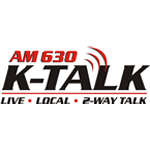North Korea said on Thursday it would carry out further rocket launches and a nuclear test that would target the United States, dramatically stepping up its threats against a country it called its “enemy”.
The announcement by the country’s top military body came a day after the United Nations Security Council agreed a U.S.-backed resolution to censure and sanction the country for a rocket launch in December that breached U.N. rules.
“We are not disguising the fact that the various satellites and long-range rockets that we will fire and the high-level nuclear test we will carry out are targeted at the United States,” North Korea’s National Defense Commission said, according to state news agency KCNA.
North Korea is believed by South Korea and other observers to be “technically ready” for a third nuclear test, and the decision to go ahead rests with leader Kim Jong-un who pressed ahead with the December rocket launch in defiance of the U.N. sanctions.
“We hope they don’t do it. We call on them not to do it,” Davies said. “This is not a moment to increase tensions on the Korean peninsula.”
The North was banned from developing missile and nuclear technology under sanctions dating from its 2006 and 2009 nuclear tests.
The concern now is that Pyongyang, whose only major diplomatic ally, China, endorsed the latest U.N. resolution, could undertake a third nuclear test using highly enriched uranium for the first time, opening a second path to a bomb.
Its previous tests have been viewed as limited successes and used plutonium, of which the North has limited stocks.
North Korea gave no time-frame for the coming test and often employs harsh rhetoric in response to U.N. and U.S. actions.
Its long-range rockets are not seen as capable of reaching the United States mainland and it is not believed to have the technology to mount a nuclear warhead on a long-range missile.
“The UNSC (Security Council) resolution masterminded by the U.S. has brought its hostile policy towards the Democratic Peoples Republic of Korea (North Korea) to its most dangerous stage,” the commission was quoted as saying.









